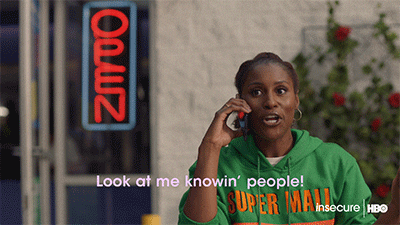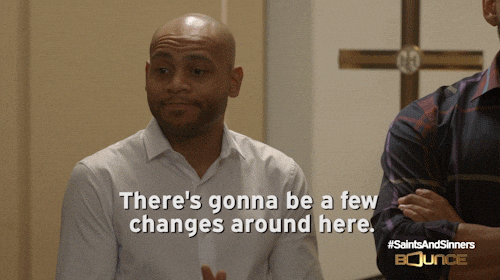Remember the last book that wowed you? Remember how you wished you were as talented as the writer?
That’s the effect a good writer has on readers.
And reaching this stage of writing mastery is not a “gift from above”; it is a culmination of sleepless nights, rejected drafts, oceans of coffee, and mental toughness.
But if you aspire to become a household name in any writing genre, you must work on your craft religiously.
I am on a journey currently, studying the best in the business and what makes them stand out.
In this article, I’ll show you how to become a better writer. But before that, let’s dissect the qualities of a good writer.
8 qualities of a good writer

Aspiring writers often revel in awe after reading an earth-shattering piece, book, or copy.
When will I get this good? How long does it take to become a better writer?
The truth is that anyone can improve at anything if they have the right mindset. And there is no hardline timeframe to improving your writing skills.
Nonetheless, here are the qualities of a good writer.
Organization
We all have our process as writers: some of us unstructured while others are meticulous.
Do what you want when working on your personal blog. But when offering professional writing services, you must iron out the disorderliness.
Keeping your drafts, pending tasks, and notes intact improves your writing. So, use time management tools to follow deadlines.
And if possible, buy content workflow organization software.
Attentiveness
Exceptional writers always pay attention to detail, which is a prerequisite for impeccable writing.
Readers tune out if your writing contains logical inconsistencies, poor spelling, and terrible punctuation.
Not only that, always observe things around you and how people interact with them. This keen eye for detail will sharpen your storytelling abilities.
Clarity
In the past, professional writers received accolades for Thesaurus Nagasaki: they littered the page with ‘big’ words and used complicated phrases to impress their audience.
Some of these writers delivered the message successfully, while others confused the readers.
Don’t write for applause; express your thoughts plainly.
Conciseness
Concise writing adds more clarity to your written work. Don’t use more words than necessary to express an idea. Tighten up the tattered edges and weed out fluff from your writing.
Innovation
The best writers distinguish themselves for being excellent innovators. If you can generate ideas easily, you position yourself as a reliable, top-notch writer.
And when the ideation chain goes stale, your creativity will help you analyze and salvage the writing process.
Empathy
Harry Potter made you choose sides. Mr. Mercedes gave you nightmares. Romeo and Juliet angered you — or made you cry.
The common factor in these books is that they make you feel something. So, a phenomenal writer should embrace emotions and empathize with the reader. By doing so, you create a connection with them.
Authenticity
As writers, we often regurgitate the same narrative structures and storylines, thanks to academic writing. However, genuinely talented writers aren’t scared to show their personalities on the page.
Teachability
All creatives have massive egos. You always think you are the franchise quarterback on every project. But the truth is that you are not the star player — not by a long shot. So, stay humble and learn from others.
By working on these traits, you will become a better writer. Soon enough, you will start seeing these qualities of good writing in your work.
20 tips on how to become a better writer
As you’ve now identified the qualities of a good writer, it’s time to explore how to boost your writing skills and become exceptional.
Here are the tips on how to improve writing skills.
1 — Read and dissect

Reading familiarizes you with the works of great authors and gives you fresh ideas.
But that’s not how to read to become a better writer.
When you read any written piece, dissect the elements on the page and interpret them in your own words. Focus on assimilating the writer’s style, vocabulary, and cadence.
If you read a chapter or segment that hits home, deconstruct what makes it special and add it to your toolbox.
2 — Practice writing
Like every other craft, you need constant writing practice to upgrade your software. And that’s why you must create a writing schedule and follow it like your serious gym routine.
Also, try to focus on your niche. If you are a content writer, follow the leading bloggers in your industry. Aspiring copywriters can follow champions of copy like CopyPosse and Alex Catonni.
Similarly, budding writers yet to choose a niche can use creative writing exercises to improve writing skills.
But how does creative writing help you become a better writer?
Creative writing gives you the leeway to practice the acquired skills without worrying about target audiences, technical requirements, and SEO.
Just freestyle and grow from there.
3 — Dedicate time to rewriting
Writing is only one aspect of the entire creative process. If you want to polish your delivery, you must rewrite like a maniac.
Writers like William Zinsser and Stephen King state that rewriting makes or breaks writers.
Don’t rush to publish or submit that story or copy. Let it sit for some time before rewriting. When you come back to proofread and rewrite, you will see the flaws clearly.
Declutter your sentences, rearrange awkward paragraphs, address misspellings, and replace weak adverbs with powerful verbs.
4 — Eliminate fluff

Removing fluff from your work is part of the rewriting process.
When editing, highlight every ‘dangling’ word in the sentence and see if the meaning of the sentence changes without it.
Adverbs like “really” and “actually” appear in conversations but don’t add much to written communication. Cut them out.
Wordy sentences and redundancies also clutter the text with unnecessary words.
For example:
- Advance
forward - Often
times - In my
own personalopinion
You can see that these extra words don’t magnify the meaning.
5 — Stop using cliches
Cliches come from conversations. They are thorns in the flesh of every writer — and getting rid of them is a daunting task.
But seriously, cliches come from lazy writing. Since the expressions are familiar, they just flow onto the page.
However, cliches are not wrong technically. The only issue is that it doesn’t surprise the reader — and robs your writing of its authenticity.
6 — Get straight to the point

We all hate writers that ramble without getting to the gist. Wrap it up; we have other things to do.
If you want people to read and enjoy your work, keep it concise and compact. If you wish to flex your vocabulary, play Scrabble.
By the way, eliminating fluff and cliches is part of the rewriting process that declutters your writing.
7 — Improve your headers and subheaders
This writing tip is for content writers and copywriters.
Face it; modern readers don’t have the attention span to read your long articles and copies. Most of them just skim through the headers and skip to the conclusion.
So, ensure your headers grab the reader’s attention instantly and deliver the gist of the coming paragraph.
8 — Create your unique style

When you hear a Rihanna song, it sounds like Riri. You recognize Adele whenever she comes on the airwaves. And JayZ’s flow is a pop culture phenomenon.
But can writers sound unique like singers?
Of course!
The top-shelf writers all have unique styles. Fans of Hemingway can recognize his work from a pile, and Shakespeare sounds like no other writer from his era.
With constant practice, your voice can take shape too. But first, you have to imitate your favorite writers — “fake it till you make it.”
And I don’t mean plagiarizing people’s work; just copy their style and delivery.
After dissecting their work, use the elements you find captivating to improve your writing. With time, you will develop a writing style that sounds like you.
9 — Accept feedback

Feedback is that unavoidable gut-punch you must endure to become a better writer.
And I am not talking about the “good job, hun!” compliments. By feedback, I mean constructive criticism from your peers or mentors.
Regardless of your experience level as a writer, you will always clash with editors and critics.
Don’t let your ego prevent you from taking valuable corrections. Pay attention to those editorial comments; you might pick up some gems.
10 — Network with other writers

Writing is often a lonely craft; you spend long hours in front of your computer punching at keys. But with social media, writers no longer need to wallow in solitude.
Nowadays, you can join a critique circle or writing group. Whichever you choose, you will have a platform to test your ideas and get inspiration when you are battling writer’s block.
If possible, attend writer conferences and seminars and meet other writers.
11 — Stay consistent
Writing — like going to the gym — is not always fun.
Some days, you feel pumped to work out. Other days, you just want to watch Netflix shows under your cozy duvet.
Don’t let laziness win…
Writers with the self-discipline to follow a writing regimen have a greater chance of improving their craft.
Nevertheless, don’t torture yourself when the ideas stop flowing. If you are going through a creative block, switch up the repertoire. Try creative writing, cognitive writing, or doodling.
By persevering through these tough times, you win moral victories and prepare yourself for future frustrations.
12 — Publish your work
I am pushing past a large veil of guilt to write this paragraph.
As I type these words, I have hundreds of unpublished articles on my hard drive — not all of them are complete, to be fair.
But enough about my hypocrisy…
Keeping your work on your laptop does nothing for you. I know you are feeling that imposter syndrome. I understand that you don’t think your work is good enough.
But the reality is that you can never be the finished article as a writer. You just have to continue chipping away at the bad habits and setting new targets for yourself.
And when you have something noteworthy, post it on your blog, Medium, LinkedIn, or any other platform.
I mean, what’s the worst that could happen?
13 — Upgrade your skills

Your brain is like a computer that runs on the software programs you get from learning. As a writer, you need to invest in resources to improve writing skills.
You can upgrade your writing arsenal by taking writing courses that offer job-relevant certifications.
Besides, you can expand your learning to other writing genres. Study the work of writers in several fields and “steal” elements from them to elevate your expertise.
14 — Learn to use new tools
As part of learning new skills, every writer, regardless of experience, must learn how to use modern writing tools.
Here are the reasons:
- Knowledge of modern tools increases your chances of employment.
- Note-taking tools allow you to take down ideas as soon as they come to you.
- AI-powered writing tools like Grammarly improve the quality of your writing.
- Time management tools help you plan your writing.
- SEO tools propel your content on search engines.
- Content planning tools help you manage your time and become more productive.
Besides, you can now use concentration and meditation tools to escape the stress of writing. So, add these tools to your toolbox and use them to hone your writing skills.
15 — Acknowledge your limitations

As writers, rejection and failure will trigger your impostor syndrome every time.
Don’t dwell on rejection or harsh criticism. Use the experience to fuel for further improvement.
Accept that you don’t know everything and humble yourself. If you don’t understand something, ask questions.
You will get answers 98% of the time — don’t take the unresponsive 2% personally.
By knowing your limitations and accepting your flaws, you will develop the perseverance and work ethic that makes a great writer.
Final words
Remember: there are no coronation ceremonies for exceptional writers. Embrace the late hours, harsh criticisms, frustrating first drafts, lingering imposter syndrome, and lack of support as part of the journey.
You will come out fine. You will become a great writer eventually.
Who wrote this?
As the owner and editor of SomebodySays, Ugo Ezenduka shows readers the fundamentals of content writing and blogging to help them adapt to the ever-changing landscape.
He has collaborated with several IT and publishing companies to create articles and blog posts that customers crave. When he is not in front of a screen, Ugo can be spotted somewhere with a camera or on a football pitch.




